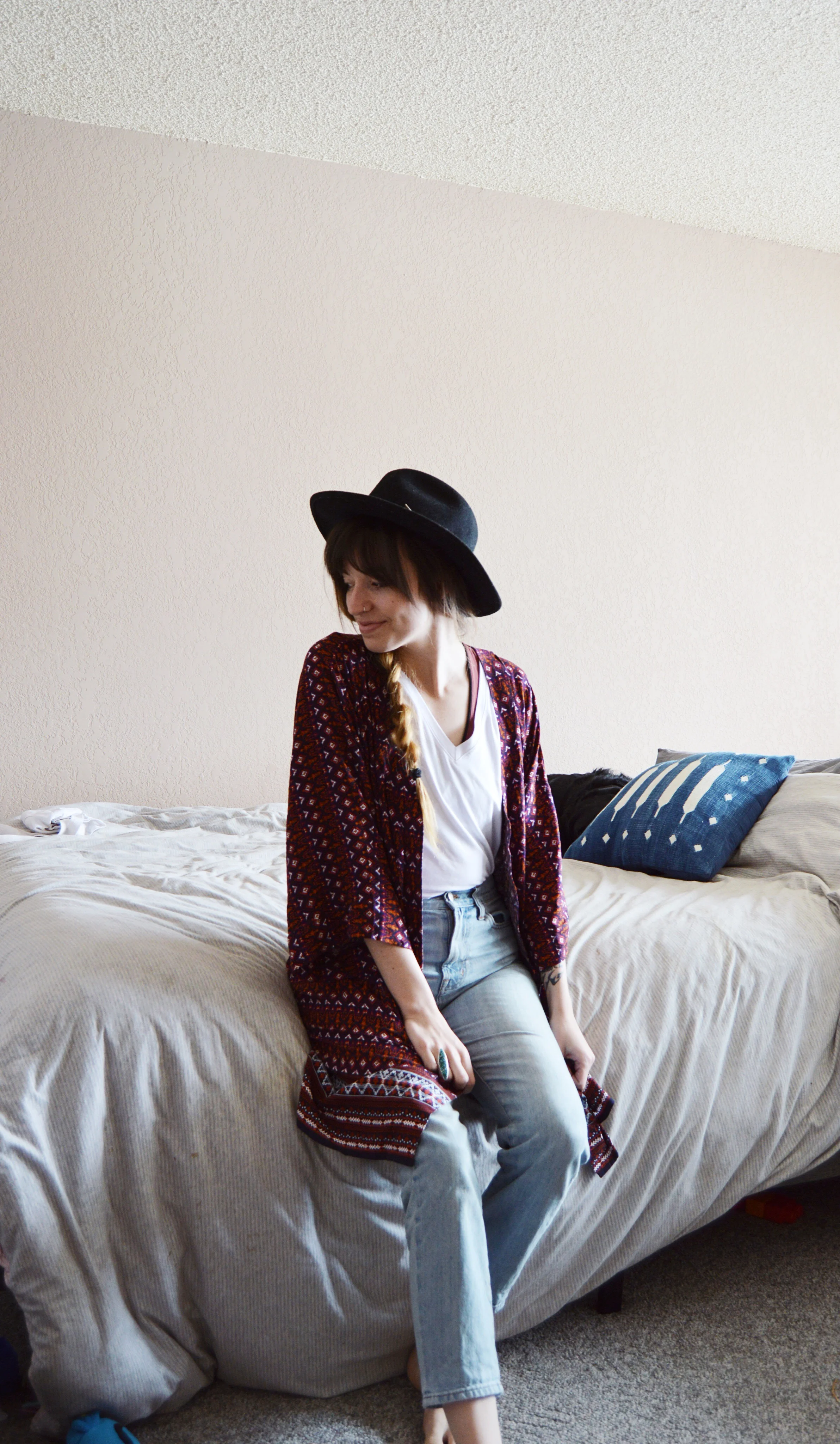Why Even Bother? || Strides in the Slow Fashion Movement
It's been nearly two years since I first announced my "transition to slow fashion" both to myself and my blog, and in that time, although my resolve hasn't lessened, I've learned a lot about the reality of the fashion industry, broke promises I made to myself, and, have seen a lot of growth in the slow fashion movement.
But, as engrossed in the "industry" as I am (in just a few years, ethical fashion and promoting it has literally become my job), there are days when I question whether it's even worth it - whether things are really changing. Of course, I know, deep down, that my purchases matter and that buying a GOTS Certified white tee from a brand who can trace their supply chain and pays their employees fairly is a better choice than running to the mall and finding the first one with a clearance tag.
Whether you're the only person you know who strives to shop ethically or, you, like me, are a part of a huge community of people committed to the notion, it's easy to get disillusioned, or even forget that what we're doing matters.
So today, in honor of Fashion Revolution month (with FashRev week creeping up the 22-29th), I wanted to share an encouraging post of progress within the slow and ethical fashion community. These things are hard to document, and it may be years before there starts to be wide-spread change within big name brands, but I truly believe in the impact this revolution is having, even if it's just t-shirt by t-shirt. We can (and we are) building a better industry.
Regardless of what human nature may be predisposed towards (and what this particularly discouraging and not entirely untrue piece from the Conversation would have us believe), the idealist in me is encouraged by the growth I've seen in the ethical fashion movement in the short time I've been involved.
Here are a few notes from the 2017 Fashion Revolution campaign and a lot of other resources (linked, if you want to check them out) that all "rev-ed" me up even more:
- In 2015 less than 200 brands responded to the social media campaign asking "#WhoMadeMyClothes"? Last year, more than 2,400 brands answered questions and responded to customers' pushes to do better. How many will there be this year?
- As of June 2017, Fashion Revolution counted 106 fast fashion "mainstream" brands who disclose at least some information about the facilities making their clothes (read the full list here).
- There is a "small but perceptible shift" towards the use of sustainable textiles in mainstream brands, collectively reducing waste and resource use. (source).
- There has been a push for more strict and all-encompassing regulation for brands, in everything from plant growth/harvesting, sourcing, resource usage, recycling, employee treatment and more. According to Global Fashion Agenda, this kind of collaboration can have industry changing effects by 2030.
- A host of regulations have already been introduced and implemented, encouraging consciousness among brands. For example, the "The Cradle to Cradle Certified™" standard by Fashion Positive ensures products can be perpetually used and reused, creating the beginnings of a closed loop system.
- The UN includes Sustainable Fashion in their Sustainable Development Goals for the fashion industry's power to affect change.
- Business of Fashion noted that 2018 is bringing to fruition the "next level" of sustainability, led by big name and small brands alike who value "sustainability across the entire value chain".
“To truly close the loop of the fashion value chain, both the technology and economics of recycling need to improve dramatically, ideally with a single standard to help with scaling up to commercialization. Getting there will require technological disruption, industry-wide collaboration and, hence, willingness to invest to truly move the needle. ”
Obviously, this is far from an exhaustive list, and I've barely scratched the surface. But, whether you're an blogger in the ethical fashion space, you own a sustainably minded brand, you're just beginning to learn what these terms mean for yourself, or somewhere in between, know that purchase power is real. And the small, seemingly insignificant changes we make in our day to day life can affect real change.
Here's to an even more impactful and awareness-raising Fashion Revolution month!




